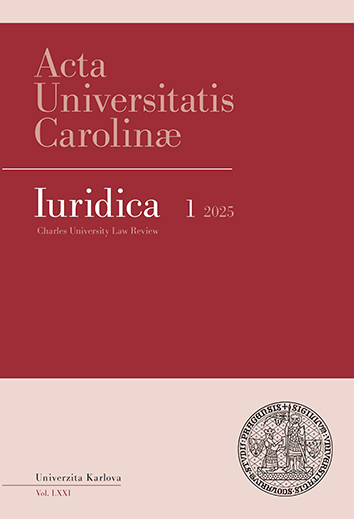Může soud dotvořením práva pomoci zaměstnanci se zdravotním postižením?
Can the Court Aid an Employee with a Disability through Judicial Law-Making?
Author(s): Nicolas ÖlveczkySubject(s): Law, Constitution, Jurisprudence, Human Rights and Humanitarian Law, EU-Legislation, Comparative Law, Labour and Social Security Law
Published by: Univerzita Karlova v Praze, Nakladatelství Karolinum
Keywords: an employee with a disability; EU and international approach; judicial law-making; (in)admissibility; conformity
Summary/Abstract: In this paper I attempt to examine the question of whether the court can aid an employee with a disability through judicial law-making. I do so by analysing the Supreme Court’s decision 21 Cdo 1276/2016. I will try to demonstrate, that it did not in my opinion consider and reflect the EU and international approach to the integration of employees with disabilities into the workforce with a sufficient degree of intensity. I introduce these approaches, and I try to showcase their possible relevance to Czech case law. I overall try to assess the decision in terms of the (in)admissibility of its judicial law-making. This means that I am attempting to determine whether the court has impermissibly encroached (by the way it interprets the law) upon the legislative authority of parliament. I firstly address the issue of judicial law-making itself theoretically and then through case law. In the case law section, I outline a “methodology”, describing a procedure a court should follow when wanting to engage in judicial law-making. I then analyse the case 21 Cdo 1276/2016 through the lens of the theoretical setting, “methodology”, and knowledge of the EU and international approach. I point out its legal framework, present its two legal conclusions, and I attempt to evaluate them in terms of their conformity with the approaches, and their (in)admissibility respectively. I affirmatively answer the question posed in the title in this part of the text in the context of a specific labor law case. I then outline the abstract implications derivable from such an analysis in the conclusion. There I provide a positive answer to the question posed in the title in a general way. Finally, I note the non-exhaustive, practicality, topicality, and interdisciplinary applicability of the topic of judicial law-making as a whole.
Journal: Acta Universitatis Carolinae Iuridica
- Issue Year: 71/2025
- Issue No: 1
- Page Range: 213-234
- Page Count: 22
- Language: Czech

